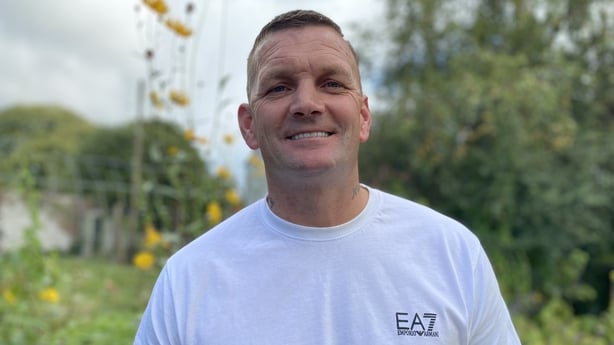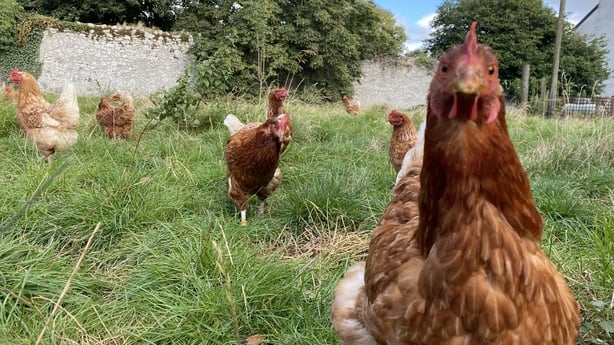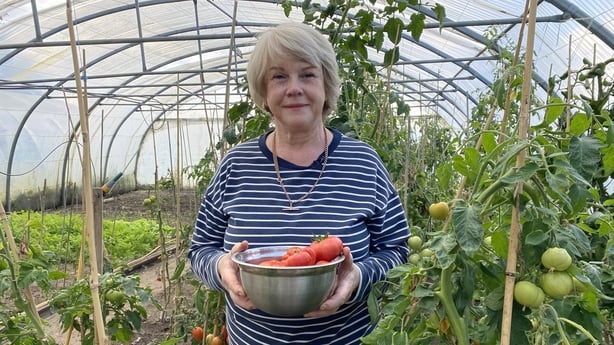Detox and rehabilitation referral lists are rising due to a lack of recovery beds, according to the homeless and addiction charity, Merchants Quay Ireland.
In a four-month period last year, over 140 phone calls made to the charity were from people seeking treatment through its residential programme on a Co Carlow farm.
Around 100 people complete the charity's detoxification, rehabilitation and aftercare programmes annually.
There are ten detox beds and 13 recovery beds at the farm, but CEO Eddie Mullins said it is not adequate.
We need your consent to load this rte-player contentWe use rte-player to manage extra content that can set cookies on your device and collect data about your activity. Please review their details and accept them to load the content.Manage Preferences
"When a person is ready for recovery, we need to strike then. We need to be ready to provide that service. In two months' time, their life could be in chaos, and we've missed the opportunity," he said.
The other issue facing Merchants Quay is that it does not release people into unsupported emergency accommodation, which means some clients who have completed their treatment programmes have remained at the farm as they try to find alternative accommodation.
With the farmhouse at capacity, fewer people needing treatment can be accommodated.
Most people referred to the farm's detox and rehabilitation programmes succeed in their treatments.

Last year, completion rates from the detox unit were at 84%, 41 clients, which was viewed as "a very positive outcome for the unit", because it was the first full year without service interruption since the Covid-19 pandemic.
"I was so scared. I was going back to my area, where I got everything, the people I used with, I was going back to all that and it was scary"
Tommy Long was addicted to heroin when he arrived at the facility in 2018.
"I will never forget coming up here in the car. It was one of the toughest spins I ever had in my life. When I got here and just got into detox it was like a weight taken off my shoulders, you know? And I felt safe for the first time, in a very, very long time."
Mr Long went from being someone in addiction who wanted to end his own life to one who thrived on the farm.
The worry about getting drugs was gone, he embraced the detoxification programme and everything became manageable, but moving on was a challenge he had to overcome.
"I was so scared. I was going back to my area, where I got everything, the people I used with, I was going back to all that and it was scary," he said.

When he returned to Cork, Tommy looked for friends who had also been at the farm and were clean.
"I started going to meetings and I was hungry for my recovery at the time coming out of here. After a couple of months, I got work and I kept myself busy," he said.
Working on a farm was new for Tommy, but learning to grow vegetables, take care of the animals and cooking is part of the programme under the guidance of farm manager Norah Burgess.
The first job that the client does when they arrive is sew a tray of seed.

"They're not in great shape, but they sit down and follow the programme. So, we'll sow a tray of seeds and and then in about ten days, I'll show them the same tray of seeds and that's where the seeds have sprouted, and they're just amazed that 'this is something I've done, and it's worked'."
The clients learn to work on the farm and feed the animals, which places some responsibility their way.
"Some people have never been in a country setting. Where does a carrot come from and why is it crooked? All that sort of thing crops up. And so then having fed themselves with the food that they've minded along the way, they just get a good sense for themselves and it's all part of the growth and looking after themselves and leaving the old life behind."
However, creating a new life is difficult for those who have completed their treatment programmes and remain at the facility due to the housing crisis.
Despite a recommendation by the Citizens Assembly on drugs for more targeted recovery facilities and programmes towards drug addiction, referral lists continue to grow.
Tommy Long said those in need of treatment should not be deterred.
"There's no such thing as a hopeless case to know. Recovery is there for everyone, but you have to want to.
"You have to put in the work because this is not easy. If this is easy, everyone be clean. You know you want to have your battles, but never, ever give up. Never, ever give up."






